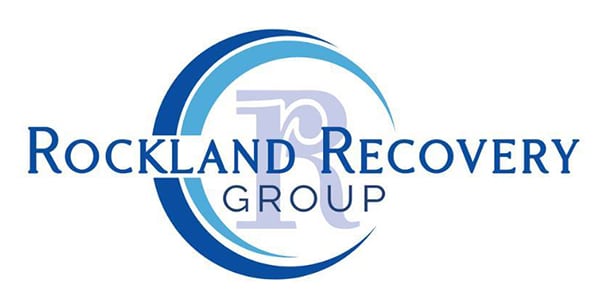Watching someone you care about struggle with addiction is difficult, and the effects on your own life can be profound. Someone with an addiction may seek treatment when encouraged by others, but this isn’t always the case. The person you care about may refuse treatment and react negatively to suggestions. If you’ve come up against a brick wall in trying to help the person you care about, here’s some advice on what to do when someone refuses rehab.
Why Some People Refuse Rehab
When someone is approached about seeking help for addiction, it’s almost always coming from a place of love and concern. Nobody wants to see someone they care about suffer, especially in a way that can destroy a person’s life, like drug or alcohol addiction.
From the outside, it can be difficult to understand why someone wouldn’t want to get help for their substance use. It can also be difficult to comprehend how difficult overcoming addiction is. It’s important to remember that addiction is a disease and not a choice that can be easily stopped.
There are several reasons that someone may be hesitant or resistant to drug or alcohol rehab. The first can be simple denial. The person who has a substance use disorder can be the last one in line to realize there is a problem. They may feel that they have their substance use under control and not see how their actions are affecting others.
You might find that they think they can stop whenever they want, or they might deflect the blame, placing the responsibility for their drug use on the behavior or actions of others. Stigma and the fear of what detox will feel like are also reasons why someone may refuse rehab.
When drug or alcohol use has become an element of daily life, you’re asking them to change their life as they know it completely. While the change is positive and best for them, it can still cause a great deal of uncertainty and fear.
Supporting a Loved One Who Refuses Rehab
If you’ve tried convincing someone to go to rehab without success, you don’t have to give up hope. The person you care about may just need some time to process what you’re proposing. You can continue supporting your loved one, but it’s also important to set boundaries for your well-being.
The natural inclination might be to push and relentlessly bring up the issue. However, this approach rarely works. Sometimes, it’s best to step back, care for yourself, and gain a new perspective on how to help your loved one best.
Steps to Take When Rehab Is Not an Option
If you’ve tried convincing someone to go to rehab without success, you don’t have to give up hope. The person you care about may need time to process what you’re proposing. You can continue supporting your loved one, but it’s also important to set boundaries for your well-being.
The natural inclination might be to push and relentlessly bring up the issue. However, this approach rarely works. Sometimes, it’s best to step back a bit, care for yourself, and gain a new perspective on how to help your loved one best.
It’s also important to maintain a sense of hope and patience during this challenging time. While it can be incredibly frustrating to see someone you care about reject help, remember that change often happens slowly and in stages.
Find Support
There are many great resources available for families and loved ones of those struggling with addiction. The Substance Abuse and Mental Health Services Administration (SAMHSA) is an invaluable resource for families and can point you in the direction of support groups for families and loved ones of addicts.
Learn About Addiction
There are many misconceptions and misunderstandings about addiction. Learning more about addiction as a disease, how it affects the body and mind, and the process of recovery is important for helping your loved one.
Set Boundaries
Healthy boundaries are important in all relationships, and even more so when addiction is a factor. Boundaries will help you feel more in control of what otherwise seems like an uncontrollable situation.
Examples of boundaries include prioritizing your own mental health, no longer being willing to walk on eggshells around your loved one, and no longer enabling (funding, making excuses, covering for, etc.).
Encourage Medical Care
Consider having your loved one go in for a checkup. This approach allows you to be honest and say something about how you just want to ensure they’re in good health, which will put your mind at ease. You might also make an appointment for yourself.
Contact the doctor ahead of time to inform them of your knowledge or suspicions of addiction. Due to doctor-patient confidentiality, their doctor may not share information with you, but informing them beforehand can help clue them in on what to look for.
Skip Avoidance
Avoiding the issue completely, even if your loved one has refused rehab, isn’t the best approach. Use honest, direct language when talking about substance use, and avoid pretending like it doesn’t exist. However, do not criticize, blame, or use harsh, hurtful language with your loved one.
Consider an Intervention
It’s important to accept that getting your loved one into rehab may be something that you’re not going to be able to do on your own. Consider working with an intervention specialist.
An intervention should be a planned event. Attendees are carefully chosen, and each person has the opportunity to decide what they want to say. An intervention specialist can help each person prepare to express themselves constructively and coach everyone on what to expect.
Having a non-partial person at the intervention can help ensure that it stays on track and productively encourages rehab.
Addiction Recovery Resources for You and Your Loved One
Overcoming denial in addiction is a challenge that many face. Denial, uncertainty, and fear can all make it difficult to admit to the need for rehab. At Rockland Recovery, we’re here to help you and your loved one receive the addiction treatment they need.
We welcome you to contact us and begin the dialogue about addiction treatment and what it means for the person in recovery. Contact our professional, compassionate addiction care experts today at 888-299-4833.




